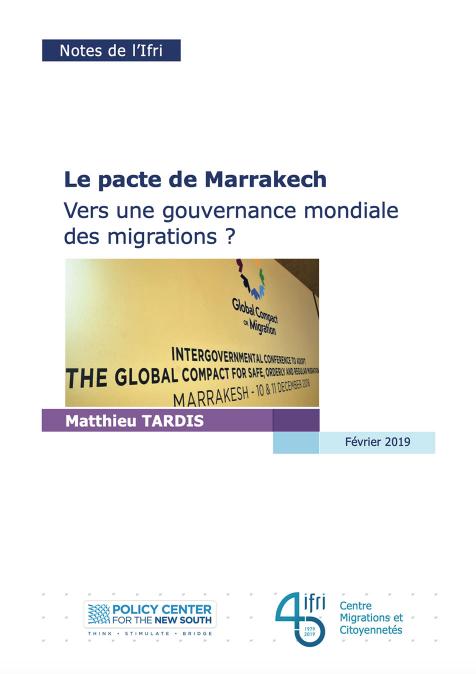Publications /
Opinion
The United Nations (UN) General Assembly meets this week (Sept. 22-29) to celebrate its 75th anniversary and address significant global challenges. There is no shortage of them: a global pandemic, a devastating economic crisis, an unprecedented explosion in the number of refugees, and the beginning of a new normal of growing conflicts between the United States and China in the dispute for global hegemony.
The circumstances are not very different from that problematic year – 1945 – when the UN was founded. The end of the Second World War revealed the greatest atrocities ever practised in history. From the holocaust to the dropping of atomic bombs on Hiroshima and Nagasaki, the world had faced and overcome its darkest period. From Hitler's expansionism to the horrors imposed in concentration camps, with the persecution of Jews, gipsies, Jehovah's Witnesses, homosexuals, communists and Freemasons, there was no doubt that the world was in deep trouble.
However, as Victor Hugo affirmed, "even the darkest night will end, and the sun will rise." Thus, it was: from the ruins of the Second World War, the international organization that would become the main driving force for peace was born. In the auditorium at the Herbst Theater in San Francisco, California, delegates from 50 nations signed the United Nations Charter on June 26, 1945. It came into force on October 24, 1945. The goal was to avoid the scourge of war. The winning Allies wanted to create an international collaboration system to maintain collective peace and security. To this end, five countries would act as the global police, as the Security Council—China, France, Soviet Union (now Russia), United Kingdom and the United States—to avoid the failure incurred by the UN’s unsuccessful predecessor, the League of Nations.
Thus, the United Nations began its impressive and fundamental mission guided by three fundamental principles: (i) renunciation of war for territorial expansion; (ii) the self-determination of peoples as a fundamental right for nations to determine their destinies; and (iii) the consolidation of human rights as never before in history. The 50 signatory countries revolutionized and reversed the course of humankind. For the last 75 years, the UN has been responsible for preventing major conflicts. It has not always been successful, but there is no doubt that the world breathes more easily thanks to its existence.
Despite the current challenges, 193 member countries must carry the torch and keep alive the mission of the United Nations set by its founding fathers in 1945. The UN contribution has been essential for the construction of a more reliable international society. Unfortunately, we have seen a deterioration in the effectiveness and relevance of the United Nations. It has become weaker. This should not be the case. More than ever, there is need for cooperation for the common good.
The current challenges faced by nations and individuals—the so-called problems without a passport, such as pandemics, cybersecurity, terrorism, and piracy, among others—require intensive global cooperation, particularly as we seek to create more global public goods with equitable sharing. Which country, alone and isolated, can meet such challenges? How can we tackle such challenges that disregard borders and affect all layers of society?
It is sad to see some political leaders vilify the impressive and noble legacy of the United Nations. There are allegations that the UN lacks legitimacy, and fears are raised about an eventual global government, but such discourses are never accompanied by solutions to match the fundamental contributions made by the UN. We can identify the same rhetoric in connection with the World Health Organization (WHO). Yet, nothwithstanding its mistakes during the COVID-19 pandemic, WHO critics have not offered ideas or tools to achieve significant results.
Our times are challenging, turbulent, and unpredictable. We fear the unknown resulting from the current hegemonic disputes. The challenges are significant, yet the opportunities are manifold: (i) as a new world order unfolds, this the time to enhance inclusion and reform the UN reflect the diversity of its constituency; (ii) the Security Council should expand to call more members to the responsibility of securing peace through increased dialogue, and (iii) enhance the humanitarian reach to address and settle, whenever possible, the challenges imposed by the ever-increasing refugee crisis.
Therefore, it is time to rethink perspectives, strategies and alliances, based on innovation and creativity. This is the time to provide the United Nations with the necessary tools, such as increased financing for humanitarian operations, employee accountability and effective communication strategies to win the hearts and minds of the peoples of the world. Such instruments would support the UN to carry on its priceless mission of maintaining world peace.
As the world faces the challenges listed above, cooperation becomes the real asset in need. The UN, as a forum for global cooperation, should continue its important role to facilitate dialogue, share best practices and foster fraternity. Are we up to it?
The opinions expressed in this article belong to the author.




